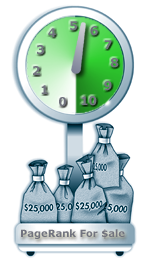On Friday I wrote a piece on how it looked like Google was testing AJAX results in the main serps. Some discussion followed as to whether, if this change were to become a widespread permanent one, this would affect Firefox plugins that existed (definitely some existing ones would stop working), break some of the rank checking tools out there (they would have to be re-written I’m sure), and even some people asking if it would thwart serps scrapers from using serps for auto page generation (not for long, no).
While those things would definitely be affected in at least the short term, there is a much greater impact from Google switching to AJAX. All of the issues mentioned involve a very small subset of the webmastering community. What actually breaks if Google makes this switchover, and is in fact broken during any testing they are doing, is much more widespread. Every single

 Again, I’ve been hacked. Well, not me personally… I wear the most up to date tinfoil attire, I assure you, and no one is getting into my head… but my blog was. This time I was running WordPress 2.6.5 when it happened.
Again, I’ve been hacked. Well, not me personally… I wear the most up to date tinfoil attire, I assure you, and no one is getting into my head… but my blog was. This time I was running WordPress 2.6.5 when it happened.  Adding images to your blog posts can make them much more visually appealing to your readers. This in turn can increase the likelihood that someone will link to that post or subscribe to your feed, which will of course in the long run help to improve your rankings and traffic. The internet is chock full of images, many of which will fit perfectly with that blog post or article that you are writing. The problem is, however, finding images that are both high quality and that you are actually allowed to use.
Adding images to your blog posts can make them much more visually appealing to your readers. This in turn can increase the likelihood that someone will link to that post or subscribe to your feed, which will of course in the long run help to improve your rankings and traffic. The internet is chock full of images, many of which will fit perfectly with that blog post or article that you are writing. The problem is, however, finding images that are both high quality and that you are actually allowed to use. Wednesday
Wednesday  Over the past couple of weeks, one of the biggest concerns about SEOmoz’s new Linkscape tool (which I recently blogged about in reference to the
Over the past couple of weeks, one of the biggest concerns about SEOmoz’s new Linkscape tool (which I recently blogged about in reference to the